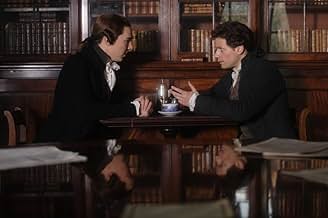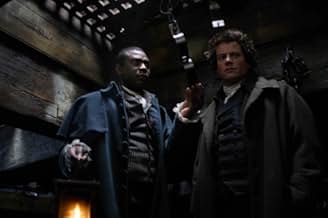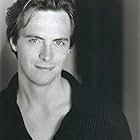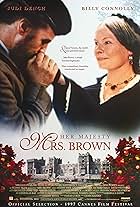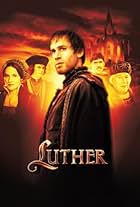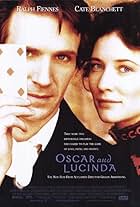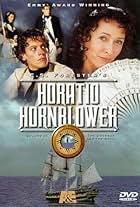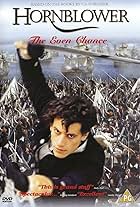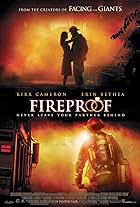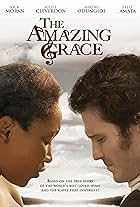The idealist William Wilberforce maneuvers his way through Parliament, endeavoring to end the British transatlantic slave trade.The idealist William Wilberforce maneuvers his way through Parliament, endeavoring to end the British transatlantic slave trade.The idealist William Wilberforce maneuvers his way through Parliament, endeavoring to end the British transatlantic slave trade.
- Awards
- 3 wins & 6 nominations
Ciarán Hinds
- Lord Tarleton
- (as Ciaran Hinds)
- Director
- Writer
- All cast & crew
- Production, box office & more at IMDbPro
Storyline
Did you know
- TriviaThe scene where William Wilberforce (Ioan Gruffudd) sings "Amazing Grace" at the card house was sung by Gruffudd at that moment. In the last several takes, a playback was used, but it is Ioan singing. Director Michael Apted had no idea whether or not Gruffudd could actually sing. Little did he know, Ioan is an accomplished soloist and choir singer. With a little practice, Ioan performed for the first time on-set while the cameras were rolling. All much to the surprise of the cast, crew, and director.
- GoofsThere were at least 3 grammar mistakes: several uses of "I" when "me" should have been used. Wilburforce also says "By who?" As a graduate of Cambridge, he would have said, "By whom?"
- Quotes
John Newton: Although my memory's fading, I remember two things very clearly. I'm a great sinner and Christ is a great Savior.
- ConnectionsFeatured in Tavis Smiley: Episode dated 23 January 2007 (2007)
Featured review
I had the pleasure this past week of seeing a pre-screening outside of Washington, D.C. of the movie Amazing Grace, starring Reed Richards...err...Ioan Gruffudd as William Wilberforce the famous British Christian politician that helped end the slave trade in Great Britain in the early 18th Century. The movie progresses through Wilberforce's life from about the time he begins his crusade against the slave trade in Parliament in his early 20's to the time it is eventually abolished. Everything in between is composed of all the hardships, victories, and relationships he goes through in the meantime. At some points the story can be a bit yawn inducing, but the film consistently seems to add just the right amount of humor or political intrigue to keep it afloat (more on the pacing below). There is a love interest Barbara, played by the quite attractive and dynamic Romola Garai, who keeps Mr. Fantastic...err...Wilberforce on track and encouraged. You get the feeling he would've never made it through the hard times without her (which is probably the case for most successful men as they say). The film does delve into evils of the slave trade, but it doesn't focus specifically on it, much like Amistad did focus on it. It seems to keep the main goal in mind, abolishing that heinous evil. This gives the film a "glass half full" feeling instead of a "glass half empty" one. You find yourself cheering for the good guys instead of seeking the heads of the bad ones.
You may be thinking they should've just called this film "Amistad: The Prequel", but that would do it a great disservice. Where Amistad succeeded in many ways such as exposing the horror of the slave trade in much more visual and visceral detail and containing great acting by Djimon Hounsou and Anthony Hopkins, I feel you ultimately left the theater not really feeling much better about anything. In fact, I'd say you may have left if feeling worse, maybe even shameful and/or guilty. Amazing Grace doesn't feel like that. In fact, it's not even really a "feel good" movie; it transcends that status. It's really a "do good" movie. You almost feel personal empowerment from the story, like you want to go out and change some social injustice yourself! Sure, we don't all have the political clout of a William Wilberforce, but we do have a voice. And I think that's why Amazing Grace stands above previous "social injustice" films like it. It feels organic instead of static. It feels like it could apply to today instead of some time long forgotten. It also appeals to everyone; black, white, or whoever. One African-American in the audience mentioned how he was impressed and encouraged at how passionate these white men were for the plight of the slaves. You also realize that slavery wasn't just an American problem, it was a world problem; which further emphasized the fact that the social injustice we see today isn't just a "fill_in_the_blank" problem, it's a world problem.
I'm not knowledgeable enough to comment very much on the technical aspects of this film, but don't let the religious overtones fool you into thinking this is another technical mess like so many in the past. It is on par with any period film of its kind from Hollywood in almost every way; acting, set design, costume design, story, etc.
One thing I found a drawback to it was its pacing though. It starts off fairly tepid, and though it builds up, it seems to go through a cycle of building up and then falling back down again. This could ultimately be a good thing though, because if you can keep your focus throughout the film, you'll be in for a very powerful ending that evokes positive emotions you didn't think you had, and I think the cyclic nature of the film's progress enhances the fulfillment the ending provides. I also found the time period jumping around within the film to be a bit confusing at some points; like some scenes I didn't know if they were in the past or present.
The representative at the screening said the movie would be playing on about 850 screens nationwide on its opening weekend (Feb. 23). Though this is small compared to most major movies, it is a pretty good amount for a smaller movie like this. I recommend going to see it if you're interested in a movie with depth, passion, character, goodness, virtue, and victory. Does it entertain? Sure. But it seems to do a little more also. You can't say that about too many movies these days. You won't leave wishing you had that $8.50 back.
In case you're wondering about the title, John Newton, the composer of the famous hymn 'Amazing Grace', (played powerfully by Albert Finney), was a contemporary and friend of William Wilberforce. John Newton was also a reformed ex-slave trader.
You may be thinking they should've just called this film "Amistad: The Prequel", but that would do it a great disservice. Where Amistad succeeded in many ways such as exposing the horror of the slave trade in much more visual and visceral detail and containing great acting by Djimon Hounsou and Anthony Hopkins, I feel you ultimately left the theater not really feeling much better about anything. In fact, I'd say you may have left if feeling worse, maybe even shameful and/or guilty. Amazing Grace doesn't feel like that. In fact, it's not even really a "feel good" movie; it transcends that status. It's really a "do good" movie. You almost feel personal empowerment from the story, like you want to go out and change some social injustice yourself! Sure, we don't all have the political clout of a William Wilberforce, but we do have a voice. And I think that's why Amazing Grace stands above previous "social injustice" films like it. It feels organic instead of static. It feels like it could apply to today instead of some time long forgotten. It also appeals to everyone; black, white, or whoever. One African-American in the audience mentioned how he was impressed and encouraged at how passionate these white men were for the plight of the slaves. You also realize that slavery wasn't just an American problem, it was a world problem; which further emphasized the fact that the social injustice we see today isn't just a "fill_in_the_blank" problem, it's a world problem.
I'm not knowledgeable enough to comment very much on the technical aspects of this film, but don't let the religious overtones fool you into thinking this is another technical mess like so many in the past. It is on par with any period film of its kind from Hollywood in almost every way; acting, set design, costume design, story, etc.
One thing I found a drawback to it was its pacing though. It starts off fairly tepid, and though it builds up, it seems to go through a cycle of building up and then falling back down again. This could ultimately be a good thing though, because if you can keep your focus throughout the film, you'll be in for a very powerful ending that evokes positive emotions you didn't think you had, and I think the cyclic nature of the film's progress enhances the fulfillment the ending provides. I also found the time period jumping around within the film to be a bit confusing at some points; like some scenes I didn't know if they were in the past or present.
The representative at the screening said the movie would be playing on about 850 screens nationwide on its opening weekend (Feb. 23). Though this is small compared to most major movies, it is a pretty good amount for a smaller movie like this. I recommend going to see it if you're interested in a movie with depth, passion, character, goodness, virtue, and victory. Does it entertain? Sure. But it seems to do a little more also. You can't say that about too many movies these days. You won't leave wishing you had that $8.50 back.
In case you're wondering about the title, John Newton, the composer of the famous hymn 'Amazing Grace', (played powerfully by Albert Finney), was a contemporary and friend of William Wilberforce. John Newton was also a reformed ex-slave trader.
Details
- Release date
- Countries of origin
- Official site
- Language
- Also known as
- Ân Điển Diệu Kỳ
- Filming locations
- Production companies
- See more company credits at IMDbPro
Box office
- Gross US & Canada
- $21,250,683
- Opening weekend US & Canada
- $4,305,000
- Feb 25, 2007
- Gross worldwide
- $32,120,360
- Runtime1 hour 58 minutes
- Color
- Sound mix
- Aspect ratio
- 1.85 : 1
Contribute to this page
Suggest an edit or add missing content




